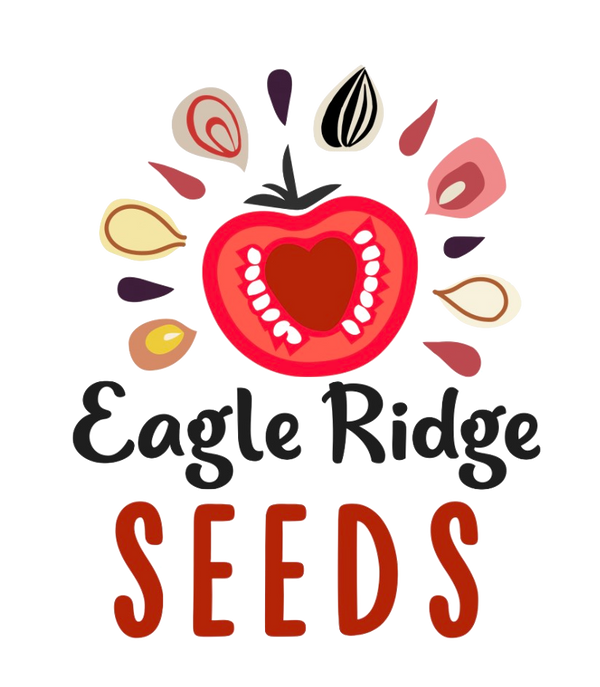Seeding For Success
Store seeds in cool, dark and dry conditions in sealed containers, until you are ready to plant. We don’t recommend a refrigerator, as they are damp inside. A closet, or in a basement is ideal. Place your paper packets in a sealing plastic bag or inside a jar.
Direct seeding of Vegetables - In well prepared planting beds, the following varieties are planted ¼ inch deep starting in early spring when the threat of frost is over in your areaBrassicas/ Lettuce/ Carrots/ Beets/ Peas/ Onions/Greens
Indoor Seeding of Vegetables - Start lettuce, onions and brassicas from mid February to March .Practice a successive planting schedule of every 2 weeks starting in the spring, to extend your harvest, for all your vegetable selections.
Greenhouse or Indoor Seeding - Use a sterile planting mix to avoid fungal diseases. For Tomatoes, Peppers and Eggplants, plant in small insert containers ¼ inch deep. Bottom heat aids germination, the best temperature is 70 degrees F .Peppers and Eggplants are very slow to germinate, 2-3 weeks is not uncommon. Don’t allow your containers to dry out .Make sure you have an adequate light source or your seedlings will stretch too tall. Transplant to 3 inch pots once true leaves appear and your plants are about 4 inches tall. Feed with liquid Kelp and fish fertilizer on a regular basis until planted outside, once threat of frost is over. You can also transplant to 1 gallon pots and then on to 2 gallon pots if you wish to grow in containers. We recommend 2 or 5 gallons for peppers and eggplants and 18 inch pots for tomatoes.
Herbs - Cover seed lightly. Most herb seed is small and can get lost when direct seeded outdoors. Keep evenly moist, but not soggy. Can plant outdoors when threat of frost is past.
Flowers - Start indoors in early to mid spring or direct seed once the threat of frost is past. We find better germination for indoor starts, as a controlled environment and regular watering is a key for best results. Cover seed lightly and keep evenly moist.
Tiny Seed- Tiny seed such as celery, oregano, petunias and nicotiana should be seeded indoors in a warm place in early spring, just barely covered with soil. Be patient with these varieties and keep evenly moist. Poppies are best seeded outdoors in fall or early spring, also barely covered.
Cool Starts - Angelica seed is short lived, cold storage is essential, plant in cool conditions, in flats of soil, with very minimum coverage, can press gently into the soil. Sweet Cicely can be seeded in containers in the fall, to overwinter or very early spring, covered lightly and kept outside.
Germination - Remember, evenly moist conditions are the most important factor to seeding for success.
